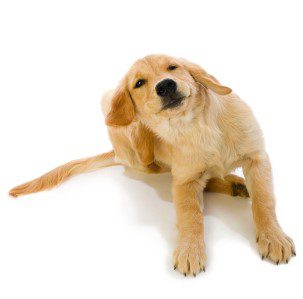

House dust allergies in dogs can cause a variety of symptoms, including skin irritation, itching, hair loss, and excessive scratching. Other symptoms may include coughing or sneezing, runny nose and eyes, and difficulty breathing. In some cases, skin rashes and breathing problems can be present.
House dust allergies in dogs are caused by an allergy to pollen, dust mites, mold spores, and other environmental allergens. These allergens can accumulate in the fur and skin of the dogs, which then cause an allergic reaction in the dogs when they are exposed. This reaction can lead to the symptoms mentioned above.
In order to diagnose house dust allergies in dogs, a veterinarian will typically conduct a physical examination and take a complete health history. The veterinarian may also recommend laboratory tests, skin scrapings, or allergy testing to further investigate the cause of the symptoms. Depending on the diagnosis, the vet may recommend avoiding the allergen by removing it from the environment or may prescribe medications or immunotherapy to help reduce the severity of symptoms.
House dust allergies in dogs can be quite serious and can even be potentially fatal if left untreated. Symptoms can become increasingly severe over time and can lead to anaphylaxis or an allergic reaction in the lungs, causing severe breathing difficulties. This can lead to death due to asphyxia if not treated immediately. The mortality rate for untreated house dust allergies in dogs is not well established, but it is thought to be relatively high.
Treatment for house dust allergies in dogs includes avoidance of the allergen, where possible, as well as medications, such as antihistamines and corticosteroids. Alternative treatments, such as immunotherapy and fatty acid supplements, may also be beneficial. A veterinarian should be consulted to determine the best treatment for a dog’s individual condition.
To prevent house dust allergies in dogs, it is important to keep the home well-ventilated, use hypoallergenic cleaning products, regularly vacuum and dust, avoid carpets and rugs, use non-toxic, pet-safe insecticides, and keep pet bedding clean. Additionally, it may be helpful to feed the dog a hypoallergenic diet, give it pet-safe antihistamine medication, and use medicated bathing products to help reduce the symptoms.
House dust allergies in dogs are not contagious and will not affect humans. However, if a human is allergic to the same type of house dust that affects a dog, they may experience some of the same symptoms if exposed. Further, if a human is in contact with a dog that is suffering from house dust allergies, they may experience some of the symptoms of an allergic reaction, such as itchy eyes, coughing, and sneezing.
House dust allergies in dogs can sometimes be confused with food allergies, as they may present with similar symptoms. Other allergies that can be confused with house dust allergies include allergies to mold, pollen, dander, or flea bites. Home remedies that can be useful in helping manage house dust allergies in dogs include regularly vacuuming carpets, keeping a humidifier in the home, and regularly washing bedding and stuffed toys. Additionally, use an anti-allergen spray on furnishings, and try to minimize exposure to airborne allergens by keeping doors and windows closed.
Even though these home remedies can potentially help manage house dust allergies in dogs, it is best to consult with a veterinarian to discuss potential treatments. Allergies can differ from dog to dog, so getting professional advice is important for the health of your pet.
There are a number of dog breeds that are particularly vulnerable to house dust allergies. These include Maltese, Bichon Frise, Yorkshire Terriers, Shih Tzus, Poodles, and Schnauzers. These breeds are particularly prone due to their short-haired coats and large floppy ears that trap in excessive amounts of dust and other allergens. To avoid a reaction to house dust, it’s important to keep your pet well groomed and to keep their environment as free from dust as possible.
Have you ever encountered house dust allergies in your dog? If so, how did your dog respond? How did you feel? How did you go about managing the situation? Whatever the outcome, it’s important to be aware of the potential signs and symptoms of house dust allergies and to provide your dog with the best care possible. We wish you the best in your journey in taking care of your beloved canine companion.